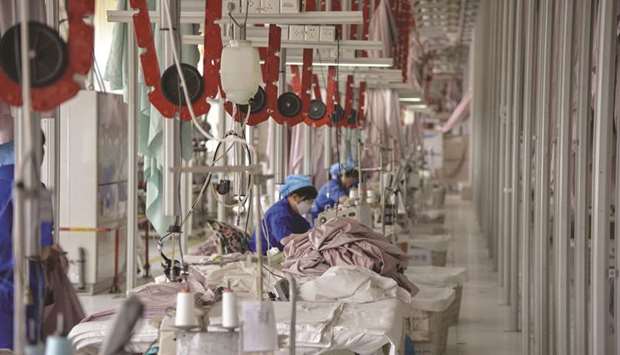China and the US may be stuck in a cycle of “fighting and talking” until 2035, according to a senior Chinese government researcher, who said relations will get worse before they get better.
For the next few years both sides will test each other’s strategic intentions and be prone to misjudgments which make trade talks difficult, according to Zhang Yansheng, chief researcher at the China Center for International Economic Exchanges. Zhang previously worked at the National Development and Reform Commission, the country’s top economic planner, and is now on their academic committee.
The most difficult period will be 2021 to 2025 and there could be friction in the areas of economy, trade, technology, and finance, Zhang said at a briefing on Wednesday organised by the government. From 2026 to 2035, China and the US may head toward “rational cooperation” from “irrational confrontation,” according to Zhang.
China uses a series of five-year plans to organise its economic development and 2035 marks the year Beijing seeks to achieve “socialist modernisation,” when China will join the ranks of world’s most innovative countries, according a blueprint laid out by President Xi Jinping in 2017. Prospects for a quick trade deal with the US have dimmed after talks stalled earlier this month and President Donald Trump threatens to hobble Chinese technology firms.
The breakdown of the current negotiations was caused by the US demanding that China make sweeping changes immediately on the trade balance, structural reform and legal amendments, Zhang said. That was too much too quickly, he said.
“None of these three topics can be realised in the short term,” said Zhang, adding that the enforcement system required by the US was beyond China’s own capabilities and the demanded legal changes were “too high a technical bar.” It takes time for China to improve its capacities nationwide, he said, citing the vast gap between the country’s metropolises and landlocked poor regions.
The US put forward a demanding package, told China to do it in one step, and threatened punishment if it didn’t happen, Zhang said. For the Chinese, “this sounds like a return to 1840. Is that fair?” he asked, referring to the the treaty the Qing Dynasty was forced to sign after losing the first Opium War.
At the same briefing a different academic said the “hostile assumptions” of the US are caused by a “trust deficit” which will worsen bilateral economic relations. “Now we are seeing decoupling happening in technology, education, academia and people-to-people exchanges,” said Li Yong, a senior fellow at the China Association of International Trade.
What the US is doing on China today mirrors what the US did to Japan in 1980s, Li said. The US is creating an “anti-China climate” as they did during the trade talks with Japan in that period to force Japanese concessions, he said. “Many measures they took then are more or less the same as now,” Li said, citing accusations of currency manipulation as an example.

Chinese employees work on manufacturing products that will be exported to the US at a factory in Binzhou in China’s eastern Shandong province. China uses a series of five-year plans to organise its economic development and 2035 marks the year Beijing seeks to achieve u201csocialist modernisation,u201d when China will join the ranks of world’s most innovative countries, according a blueprint laid out by President Xi Jinping in 2017.
